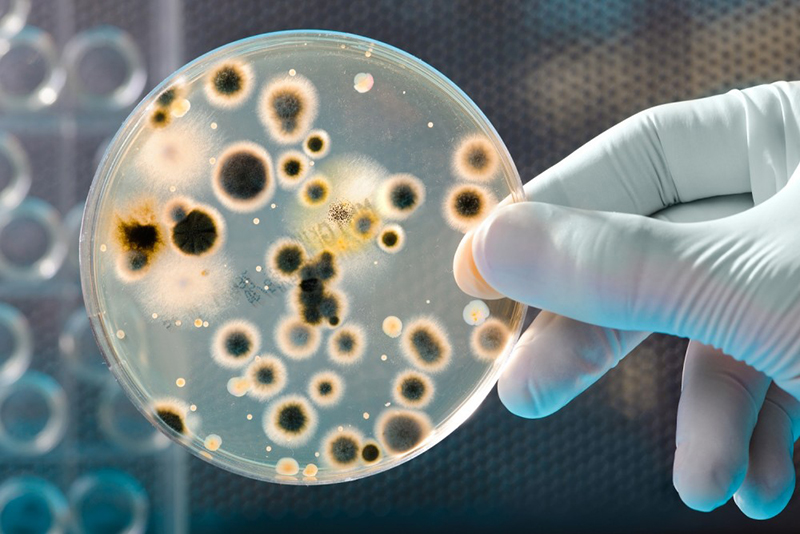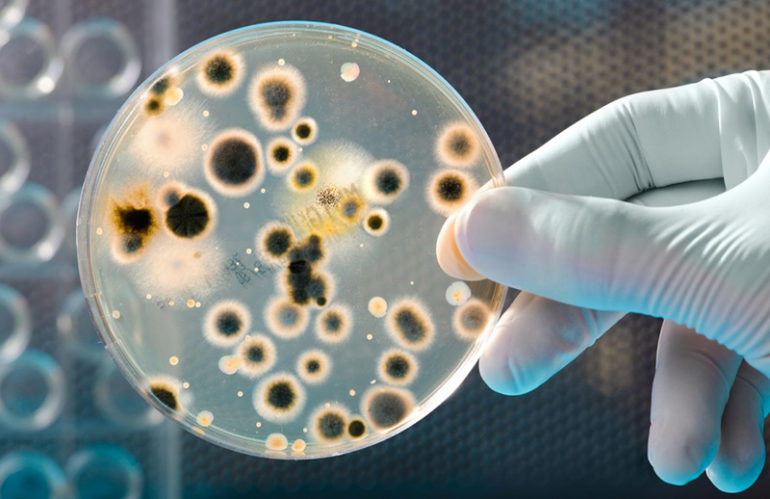
Mold testing can tell you if you have a mold problem in your home. Mold tests can also help you find hidden mold, measure your indoor air quality and identify what species of mold is in your home.
Professional Mold Testing
It’s best to have mold testing performed for you by a qualified mold professional. Hiring a professional mold tester who is experienced at collecting and analyzing mold samples will always lead to the most accurate results.
Mold Test Kits
You can purchase mold test kits which you can use to collect mold samples yourself. This is a less expensive option than having a mold tester test your home. The samples you collect will be sent away to a professional mold testing laboratory which will get back to you with the results.
Multiple Mold Tests
A mold test gives you a snapshot of the amount of mold particles in a certain area at a certain time. But the amount of mold spores fluctuates over time and from place to place.
Because of this it’s a good idea to test at several different times and in different locations in your home. This way you will get a more complete and accurate picture of the mold problem in your home.
Types of Mold Tests
The three main types of mold tests are:
- Air testing
- Surface testing
- Bulk testing
Ideally you should use all three types of tests since each have their own strengths and weaknesses.
Air Testing for Mold
Air sampling tests the concentration of mold spores in your home’s air. Samples are taken from the air and are later examined under a microscope.
Air tests can tell you if you have a mold problem even if you cannot find the mold growth. However the amount of mold spores in the air can change drastically in a small amount of time, giving varying results at different times.
Surface Testing for Mold
Surface testing takes samples from household surfaces to find the amount of mold growth and spores deposited around the home. Samples are collected by swabbing, tape lifting or other methods. The sample is then examined in a laboratory.
Like with air testing the results can vary because mold growth and spores aren’t spread evenly across surfaces in the home and can change over time. Unlike air testing though, surface tests can’t identify the exact concentration of mold spores in the air.
Bulk Testing for Mold
Bulk testing involves collecting pieces of material from the home. The material is then taken to a laboratory where mold particles on the material can then be examined under a microscope. Bulk tests can tell you if you have a mold problem and give you an idea of the concentration of mold particles in your home.
Culture Tests for Mold
Culture tests are where mold particles in a sample from the home are grown into larger mold colonies in a lab. This way culture tests identify the species of molds in houses.
Only mold particles that are still alive can be grown. However dead mold particles in the home still cause allergies and health problems. Other tests can detect both living and non-living mold in a home but can’t always identify the species of molds.
Why You Should Test for Mold
The main reasons for having mold testing performed in your home are:
- You notice signs of mold such as a mold smell or mold symptoms
- To identify the species of mold in your home
- To help you find where mold is growing
- To test indoor air quality by measuring the amount of spores in the air
- To test if mold in your home has been fully removed

